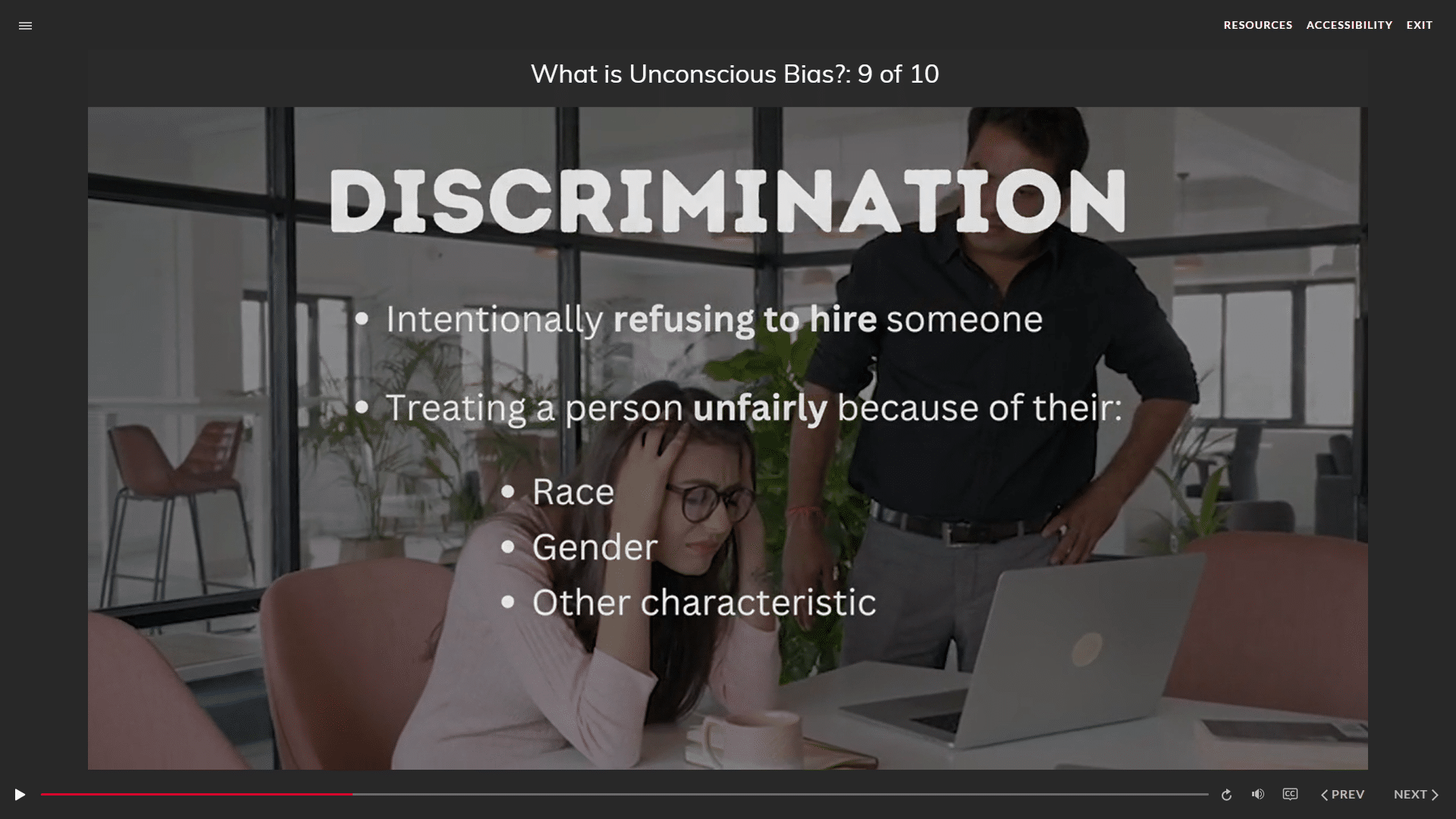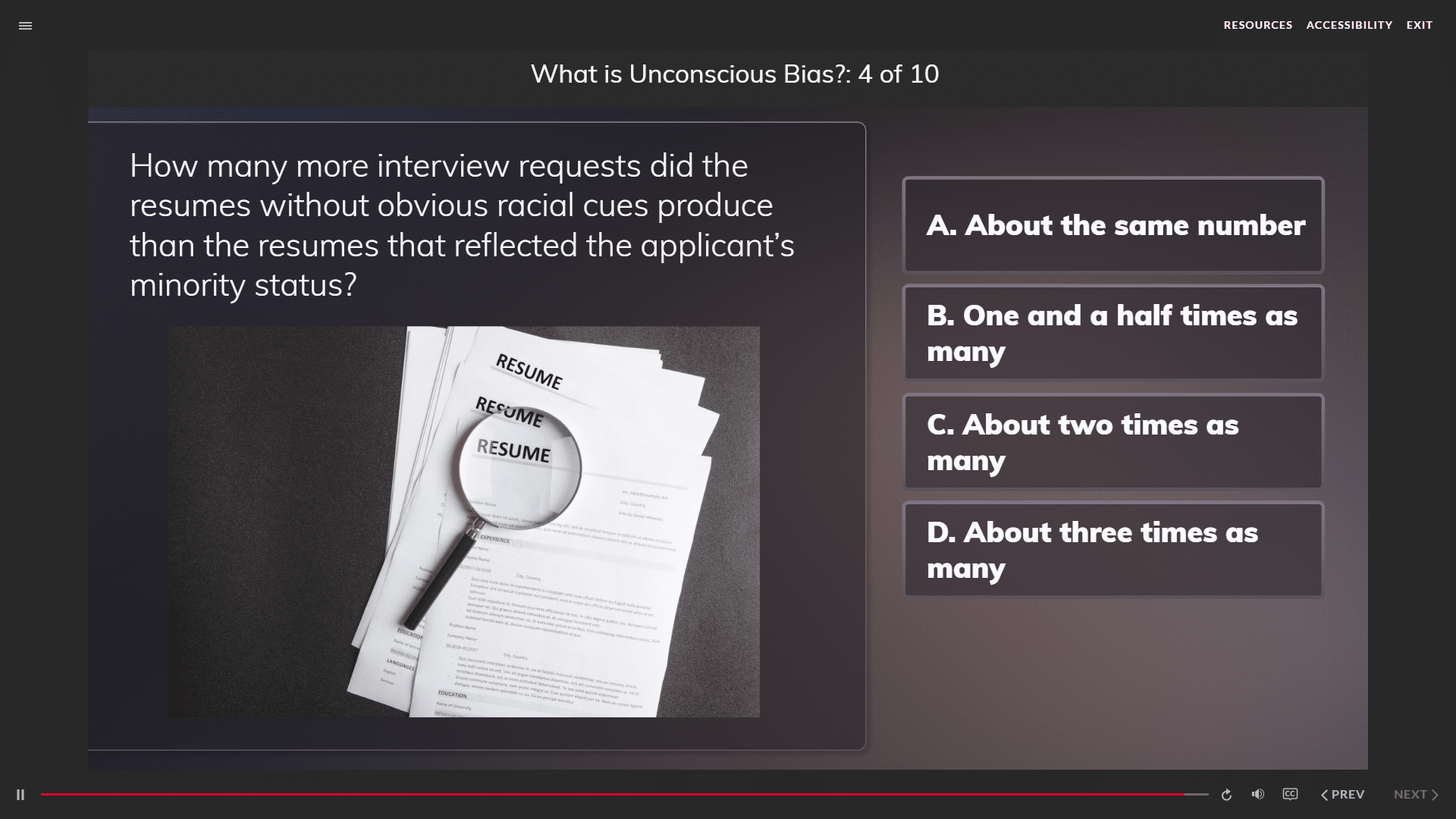Unconscious Bias Training in the Workplace
Unconscious bias affects decisions and can lead to ignoring individuals and their opinions. Aid your employees in tackling their blind spots and encourage inclusive thinking to create respectful teams.
Better everyday decisions
Through awareness and reflection, employees learn to assess and shape their behavior and broaden their mindset, ensuring an empathetic workplace that is welcoming of diverse viewpoints and ideas.

Employees and managers learn the following:
- What is unconscious bias?
- Types of Unconscious Bias
- Unconscious Bias and the Workplace
- Interrupting Bias in the Workplace
- Recruiting and Hiring (Manager Version)
- Assignments, Performance Assessments, and Promotions (Manager Version)
- Diversity and Inclusion Benefits
- Policy Review
Overview
What is Unconscious Bias?
Unconscious biases are stereotypes or assumptions that a person makes about a certain group of individuals outside of their own conscious awareness. Unconscious biases can include all types of bias, like gender bias, racial bias, LGBTQ bias, age bias, disability bias, religious bias, and over 150 more types of unconscious bias.
Researchers have found that diverse workplaces boost employee morale, increase customer satisfaction, improve workplace culture, and improve profit margins. Promoting a diverse and inclusive work environment, however, requires more than just eliminating intentional acts of harassment and discrimination. Instead, we must also attempt to understand how unconscious bias and implicit bias can impact the decisions we make and our interactions with others in the workplace.
Unconscious bias happens when people make decisions that are implicitly based upon characteristics of another without even realizing or intending to do so. When unconscious bias occurs in the workplace, employers are at risk from a legal and human resources standpoint. Effective inclusion training can help employees understand that unconscious biases exist and help them take steps to reduce the likelihood that such biases will impact their decisions and interactions with others in the workplace. An inclusion training course can provide employees practical guidance and help foster a diverse and inclusive workplace.

Online Training
Unconscious Bias
Traliant’s Unconscious Bias: Diversity, Equity, and Inclusion is a 30-minute interactive online training that goes beyond detailing the benefits of an inclusive workplace to focus on practical steps employees can take to create a more positive workplace. Specifically, the course challenges learners to explore the nuances of unconscious, implicit biases, and how our own biases can impact our judgements and decisions about others at work.
A 40-minute manager version is also available that includes the same content plus additional modules on Recruiting & Hiring and Assignments, Performance Assessments, and Promotions.
The Traliant Difference
Proven effective training
Traliant creates modern, interactive training courses to help organizations meet the challenges of today’s workplace.

Engaging Instructional Design
We’ve applied the latest in learning innovation to ensure that learners have a positive experience and retain the knowledge for future recall.
Learn More
Customization
We can quickly and efficiently customize the content and images to be unique to your organization.
Learn More
Accessible to Users with Disabilities
Traliant provides an inclusive experience for all users, including those with disabilities, by going beyond Section 508-C standards and offering WCAG 2.1 AA.
You may be interested in other courses from the same topic

Diversity, Equity, and Inclusion
7 courses
Where employees and organizations can thrive.
All courses are available in a Healthcare version.
7 courses
